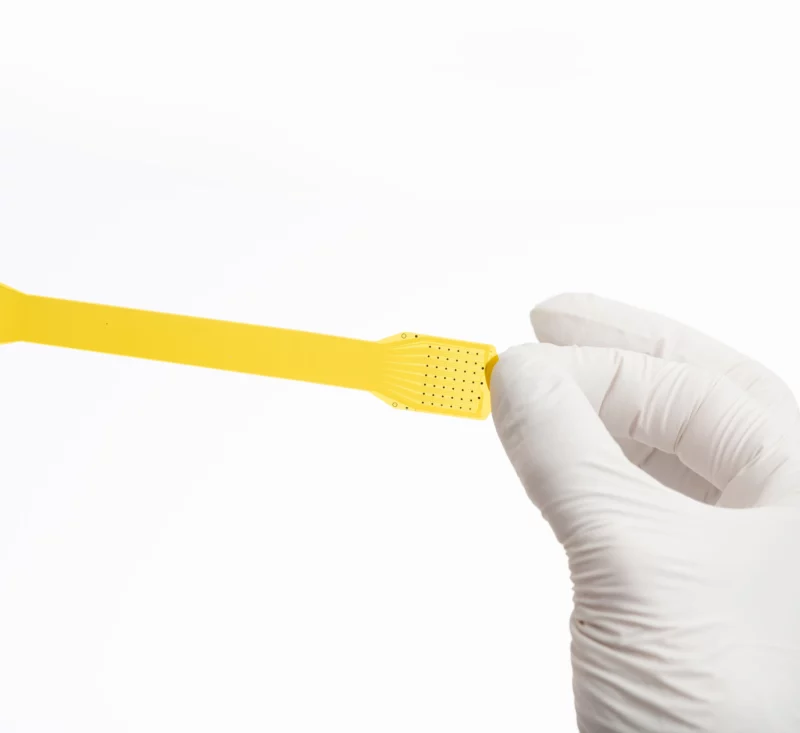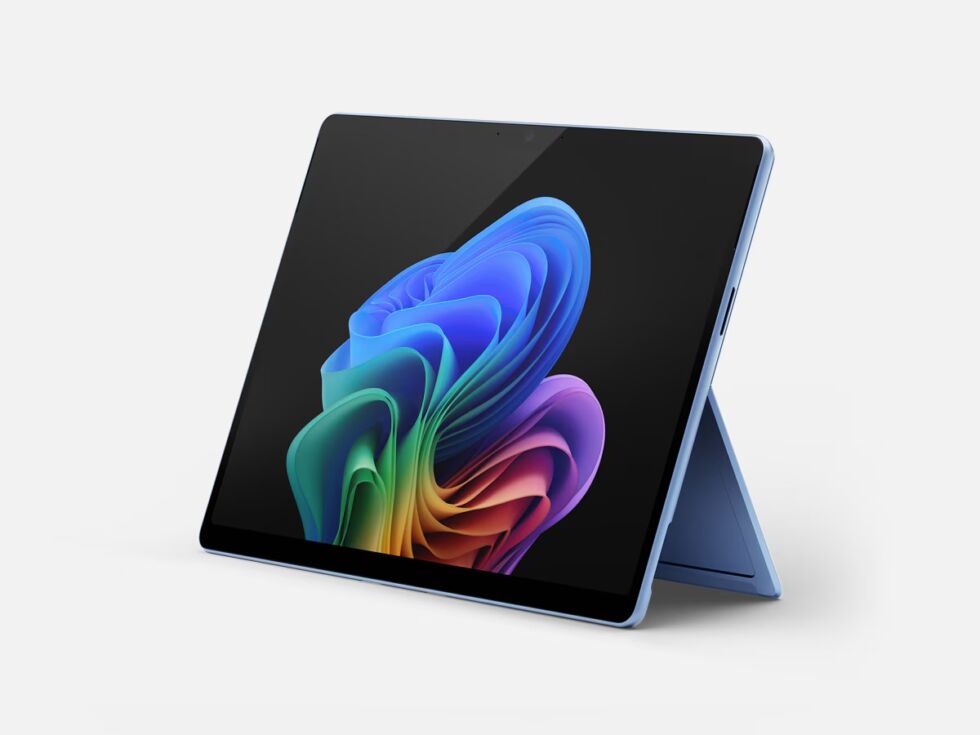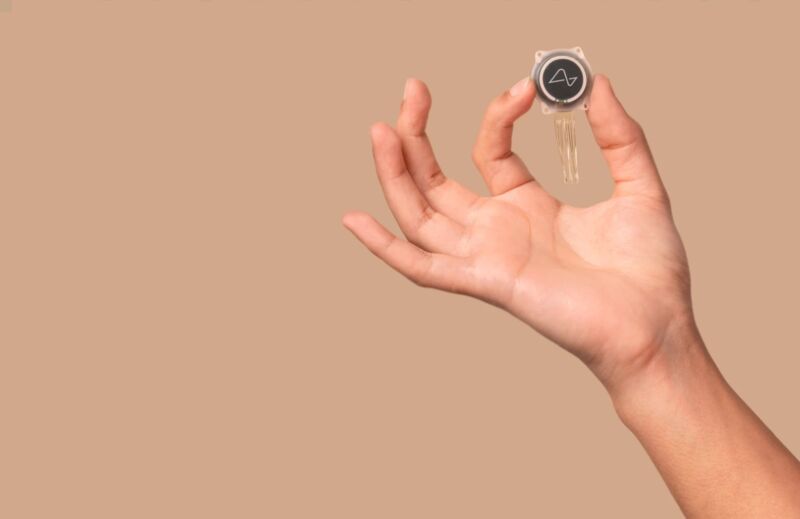Neuralink rival sets brain-chip record with 4,096 electrodes on human brain

Enlarge / Each of Precision's microelectrode arrays comprises 1,024 electrodes ranging in diameter from 50 to 380 microns, connected to a customized hardware interface. (credit: Precision)
Brain-computer interface company Precision Neuroscience says that it has set a new world record for the number of neuron-tapping electrodes placed on a living human's brain—4,096, surpassing the previous record of 2,048 set last year, according to an announcement from the company on Tuesday.
The high density of electrodes allows neuroscientists to map the activity of neurons at unprecedented resolution, which will ultimately help them to better decode thoughts into intended actions.
Precision, like many of its rivals, has the preliminary goal of using its brain-computer interface (BCI) to restore speech and movement in patients, particularly those who have suffered a stroke or spinal cord injury. But Precision stands out from its competitors due to a notable split from one of the most high-profile BCI companies, Neuralink, owned by controversial billionaire Elon Musk.


